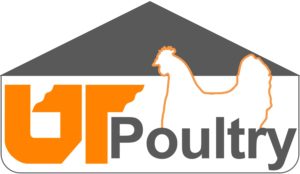Dr. Elizabth Eckelkamp
Dr. Tom Tabler
Dr. Lew Strickland
There has been a recent disease event in dairy cattle with reports of affected herds in several Southwestern states. Decreased milk production and rumination, thicker milk, and symptoms similar to pneumonia have been reported. Samples submitted from dairy cattle affected with the current disease outbreak were recently confirmed by the U.S. Department of Agriculture (USDA) to have highly pathogenic avian influenza (HPAI). This is a multifactorial disease outbreak and is too soon to predict if all the recent reports of unexplained illnesses in dairy cattle in the U.S. are due solely to HPAI. Veterinarians and the dairy industry are working collaboratively with state and federal officials during the ongoing investigation. At this time, affected cattle are expected to fully recover with symptoms subsiding within 7 to 10 days. Wild migratory birds, found dead on the property of the impacted dairies, are believed to be the source of infection. The HPAI virus is found in the nasal secretions and manure of infected migratory birds. Open water sources which may provide drinking water for cattle and are often frequented by migratory waterfowl should be considered a possible source of infection. The HPAI virus can live in water for extended periods of time, especially in cooler weather. Feed resources possibly containing infected migratory bird droppings may be another possible source of infection. Producers should have a strong biosecurity program in place, especially during wild waterfowl migration seasons.
Food Safety
Federal and state guidelines exist to ensure the safety of milk and meat products, so commercial milk supply remains safe due to animal health requirements and pasteurization. Dairies are required by the federal regulations to send only milk from healthy animals into processing/pasteurization for human consumption. The milk from impacted animals is being diverted or destroyed so that it does not enter the food supply.
TDA has not received any reports of this condition in Tennessee. Currently there are no movement restrictions for cattle moving into Tennessee. The State Vet’s Office is monitoring this situation closely. The State Vet’s Office, in conjunction with Kord lab has guidance prepared for testing of any suspect cases.
Please notify your veterinarian and the State Vet’s Office if you suspect this condition in your cattle.
If you have any questions, please feel free to contact me, lstrick5@utk.edu.
Adapted from announcement to AABP and Katelyn Allen article in Hoard’s Dairyman.
